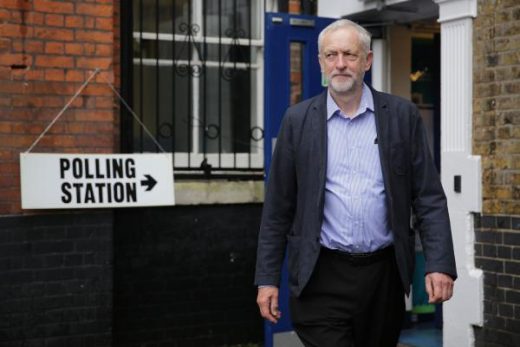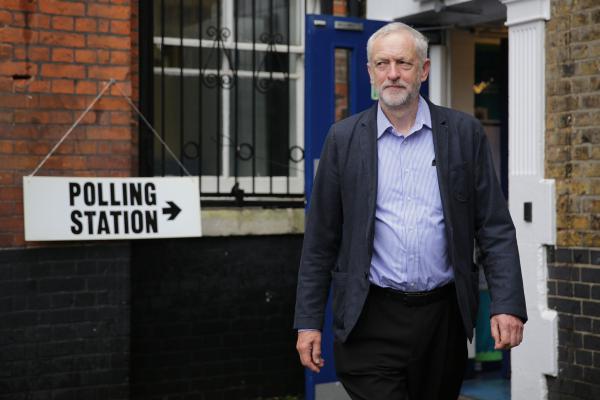Brexit Vote Looks Set to Reshape British Political Order
‘Brexit’ Vote Looks Set to Reshape British Political Order
The United Kingdom was still reeling Sunday from its cataclysmic vote to leave the European Union, with a shakeup of the entire political order underway in Westminster as the economic prospects for the country remain cloudy.
Following David Cameron’s announcement of his resignation Friday—one day after Britons voted 52-to-48 percent in favor of leaving the 28-nation bloc—the Conservative Party must now nominate a new party leader and prime minister.
Boris Johnson, the former Mayor of London and champion of ‘Brexit,’ is currently in pole position. But senior Tories are said to be determined to prevent Johnson from taking power, blaming him for Cameron’s downfall and for the result of the vote. They are said to be seeking an “anti-Boris” candidate, with Home Secretary Theresa May an early favorite.
On the other side of the political aisle, Labour leader Jeremy Corbyn is facing all-out rebellion from his shadow cabinet. Early Sunday, he sacked his popular foreign affairs spokesperson Hillary Benn for attempting to engineer a coup. Benn and others believe Corbyn’s lackluster campaign for Britain to remain within the E.U. proved he cannot win a general election.
“He is a good and decent man but he is not a leader, and that is the problem,” Benn said on the BBC on Sunday morning.

Reports on Sunday suggested much of Corbyn’s front bench would resign after Benn’s dismissal, though the Labour leader has said he will not stand down as Cameron did. If the leaders of both Britain’s major political parties were to stand down, pressure for a snap general election would grow.
With a vacuum at the top levels of government, there is uncertainty as to when the United Kingdom will officially pull the trigger on withdrawal from the E.U. The mechanism for leaving is by Article 50 of the Lisbon Treaty, and Cameron has suggested that his successor would be the one to officially notify the E.U. under the terms of the clause.
Leaders in France and Germany have called for Britain to begin the process earlier, kickstarting two years of exit negotiations within days. Frank-Walter Steinmeier, Germany’s foreign minister, said Saturday: “We say here together that this process must start as soon as possible.”
The results of Thursday’s vote had an immediate impact on the country’s economy, with the pound slumping dramatically on Friday morning to levels not seen in 30 years. The following day, credit ratings agency Moody’s downgraded its outlook for the U.K. from “stable” to “negative.”
Billionaire investor George Soros said Saturday the U.K. would “suffer significantly in the short to medium term” and said the consequences for the globe could be comparable to the financial meltdown of 2007-08.
“The financial markets worldwide are likely to remain in turmoil as the long, complicated process of political and economic divorce from the E.U. is negotiated,” he said.
(17)



